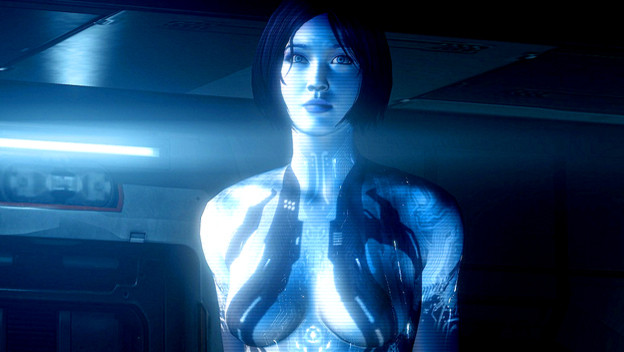The last couple of years have been positively littered with remakes. Capcom does it. Naughty Dog does it. Square Enix definitely does it. Some of these have been good examples of what a remake is capable of, while others have been clear attempts at double dipping into consumer pockets. While there’s no way of saying, in blanket terms, whether or not remakes are good or bad for the industry, it is possible to set up some guidelines for what makes for a quality remake that is an easily justifiable purchase. Let’s start with games that are remastered from last generation and move backwards in reverse chronological order. This year, we’ve seen remastered versions of a ton of PlayStation 3 and Xbox 360 titles. Uncharted: The Nathan Drake Collection was released for $59.99. The Last of Us Remastered is currently priced at $49.99. These aren’t terrible deals, but their value is contingent on whether or not you’ve already played the games. Compared to their PS3 predecessors, the increase in graphical fidelity is fairly minor; the PlayStation 3 versions are still highly playable at this point.
Halo: The Master Chief Collection, on the other hand, is comprised of two generations worth of games, all with a new HD polish. This game, which is still at full price, has the value of combining all of the Halo games into one disc, and allows players to participate in multiplayer experiences that were, for a while, no longer hosted on Xbox Live or never hosted to begin with. Ignoring the launch issues with the game, this collection is an example of what kind of value a remaster can bring to a game. One could argue, however, that most of said value is derived from the very fact that original Xbox games are contained on the disc. It seems that the older a game is, the greater the value in remastering it.
A lot of PS2 games have been getting remastered versions, as well. The graphical updates in these games are far more noticeable, and many find some value in added trophy support. Capcom loves updating games from this era. In particular, Resident Evil games seem to receive remasters more than most other series. Not only is a nice coat of polish applied to the game, but sometimes new modes are added. This will be the case when Resident Evil 0 ‘s remastered version is released in January of next year, as it contains a new mode that allows you to play as Wesker. Still, though, these changes are mostly just aesthetic, and PlayStation 2 games are not only very cheap but, as with the PS3 games, still look just fine.
Remastering PS2 games, and other games of that generation, also poses some technical problems. HD and its accompanying input latency was far from the norm in those days. As such, developers didn’t need to consider the latency in their design. This is evident in games like Final Fantasy X/X-2 HD, which has seen remastered versions on both the PS3 and the PS4. In Final Fantasy X, timing plays a crucial role in special moves and mini-games. Often, a player needs to be very precise with their button presses and, depending on their TV, will need to employ a lot of foresight and guess work in order to be successful. Fans of the game will understand how frustrating this can be.
Square Enix is a company that loves to remake its games, though. It’s actually easy to lose track of all the different versions of the Final Fantasy games. Usually, these remakes are handled extremely well. The graphics may receive a little reworking, but most of the value comes from added content, increased difficulty, built-in cheats, and ferociously difficult super bosses and bonus dungeons. Bringing these older games to a newer audience and making them more readily accessible to fans is seemingly easy for the company and appreciated by many. Considering the regularity with which Square Enix undertakes these ventures, it must be minimal on resources and financially justifiable. Of course, they largely avoid PS1 era games.

Games from that generation are a huge undertaking to remaster but are probably the ones that gamers would benefit the most from. When consoles moved into 3D design, the art and character models were grotesque. While it may have been acceptable at the time, those characters can be hard to look at today. Unfortunately, due to the age of the assets, barely any of them are reusable. As such, a PS1 game can’t simply be remastered. It needs to be built from the ground up and with a game as large as, say, Final Fantasy VII, Square Enix would wind up spending enormous amounts of money reproducing it faithfully and it seems unlikely that they would be able to justify the development time or the production cost.
They are, however, remaking Final Fantasy VII, and they’re doing their best to come up with a business model that works for it. Ideally, the game will retell the same story, fix some of the issues from the original game, but somehow keep the spirit alive. Square Enix plans on experimenting with an episodic structure for the game and, right now, a lot of hardcore fans are worried that the remake they get won’t be the remake they want. But remakes like this are mostly unprecedented, and the fact that the demand is there to justify this remake in Square Enix’ eyes is a great testament to the original game. It will be interesting to see how this works, and, if successful, maybe other developers will follow suit.
As stands now, remakes are good for business, but may not be good for the industry. While they do make publishers money that they can then turn around and invest on other projects, they do take resources and time away from those projects. It’s possible that publishers may even be relying too heavily on remakes as of late. There are just so many, but are they really what gamers want?
